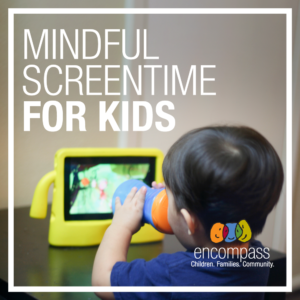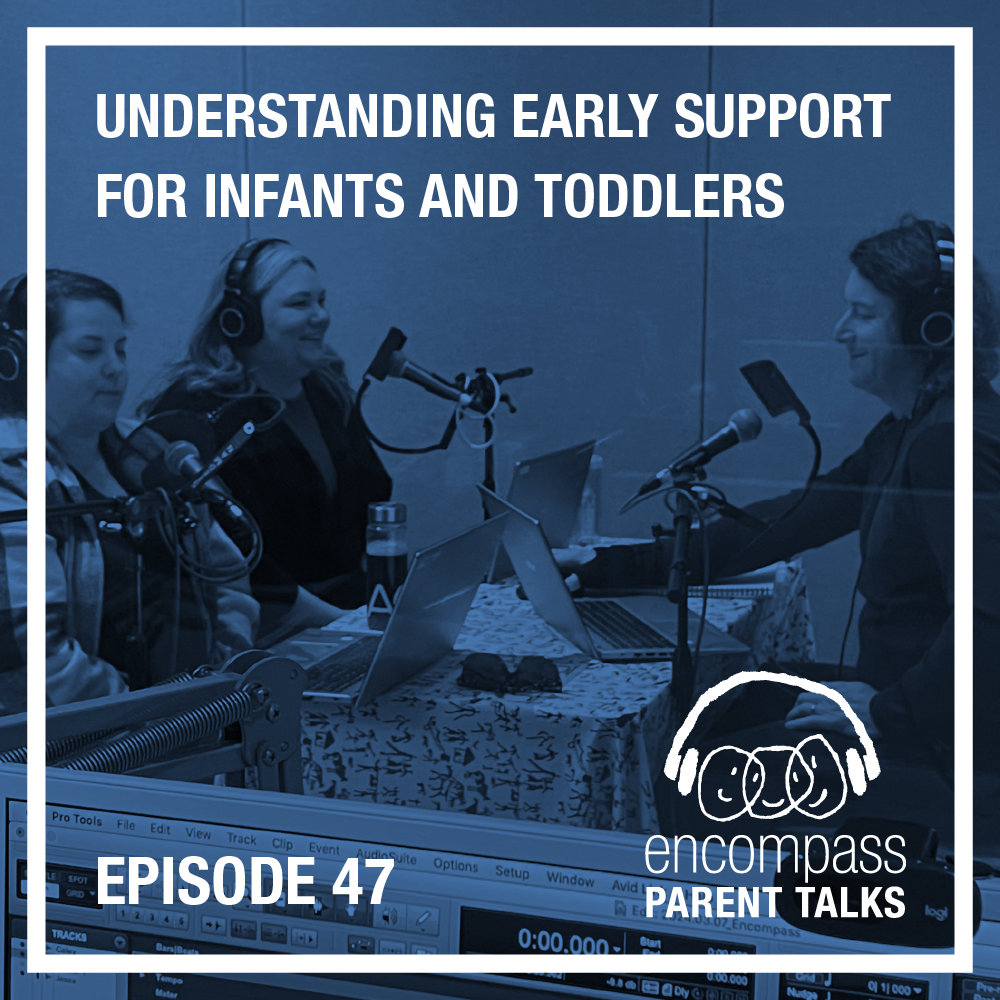Mindful Screen Time
It’s not just about length of time.
 Most caregivers are familiar with the American Academy of Pediatrics’ screentime recommendations of 1 hour a day for a child 2-5 years old and no screentime for children under 18 months. Yet we know and understand that many parents have the TV on for their children for a variety of reasons. Perhaps it’s an older child in the house who gets a little more screen time or maybe just a parent who needs to get things done in an already busy day. Throw in our COVID world for the past two years, the prevalence of screentime has done nothing but increase for children of all ages.
Most caregivers are familiar with the American Academy of Pediatrics’ screentime recommendations of 1 hour a day for a child 2-5 years old and no screentime for children under 18 months. Yet we know and understand that many parents have the TV on for their children for a variety of reasons. Perhaps it’s an older child in the house who gets a little more screen time or maybe just a parent who needs to get things done in an already busy day. Throw in our COVID world for the past two years, the prevalence of screentime has done nothing but increase for children of all ages.
But rather than let the focus of screen time rest solely on how much time (though that is still important), we encourage caregivers to also consider the quality of the show.
Child Development Specialist Jerrica Sannes compiled research articles regarding screen time for children and found that shows such as Cocomelon and similar others specifically targeted for infants and toddlers can be overstimulating.
On the surface, they might look positive. Songs and repetition of words and phrases are known to support language development. But too much of that colorful stimulation with fast-paced pictures and sounds can dysregulate a child. Sannes found increasing reports indicating that basic sleep, meal, and car ride routines can be affected and that toddlers come to expect a greater level of stimulation all the time. Simple things such as important developmental play may start to feel less exciting or engaging for a child constantly seeking fast-moving pictures. Quite simply – these shows can be addicting.
Does any of this sound familiar? If you suspect screen time or even a particular show is impacting your child’s attention/engagement or even contributing to increased frustration, take some time to observe. Watch and wonder.
- Do they need screen time during mealtimes or other routines?
- Do you notice an increase in frustration or tantrums on days where there has been more than an hour of screen time? Was it after screen time in general or after a particular show?
- Do they have difficulty transitioning from a show?
- Does your child have trouble sleeping?
- Does your child completely “zone out” for the hour the television is on?
If you’re starting to panic as you read this list, please don’t! Instead, start thinking about steps you can take to make gradual but meaningful changes:
- If your child watches a few hours of screen time a day, think about how you can slowly replace screen time with other activities such as outdoor play, sensory play, or books/fingerplays.
- Try to limit screen time to 15-minute increments a few times a day so that it’s broken up by more meaningful activities.
- Start to brainstorm with other caregivers on how you can reduce stimulating shows and replace them with something slower-paced. What has worked for them?
- Check out the Raise Wildflowers website below that suggests television shows you might want to choose for your toddler.
- If there is a show that you feel is slower-paced and nice for younger children, drop it in the comments on our Facebook or Instagram pages. We are all in this together!
Resources:
Television Shows Reviews
https://raisewildflowers.com/tv-reviews
Articles and Research on Screentime for Infants and Toddlers














